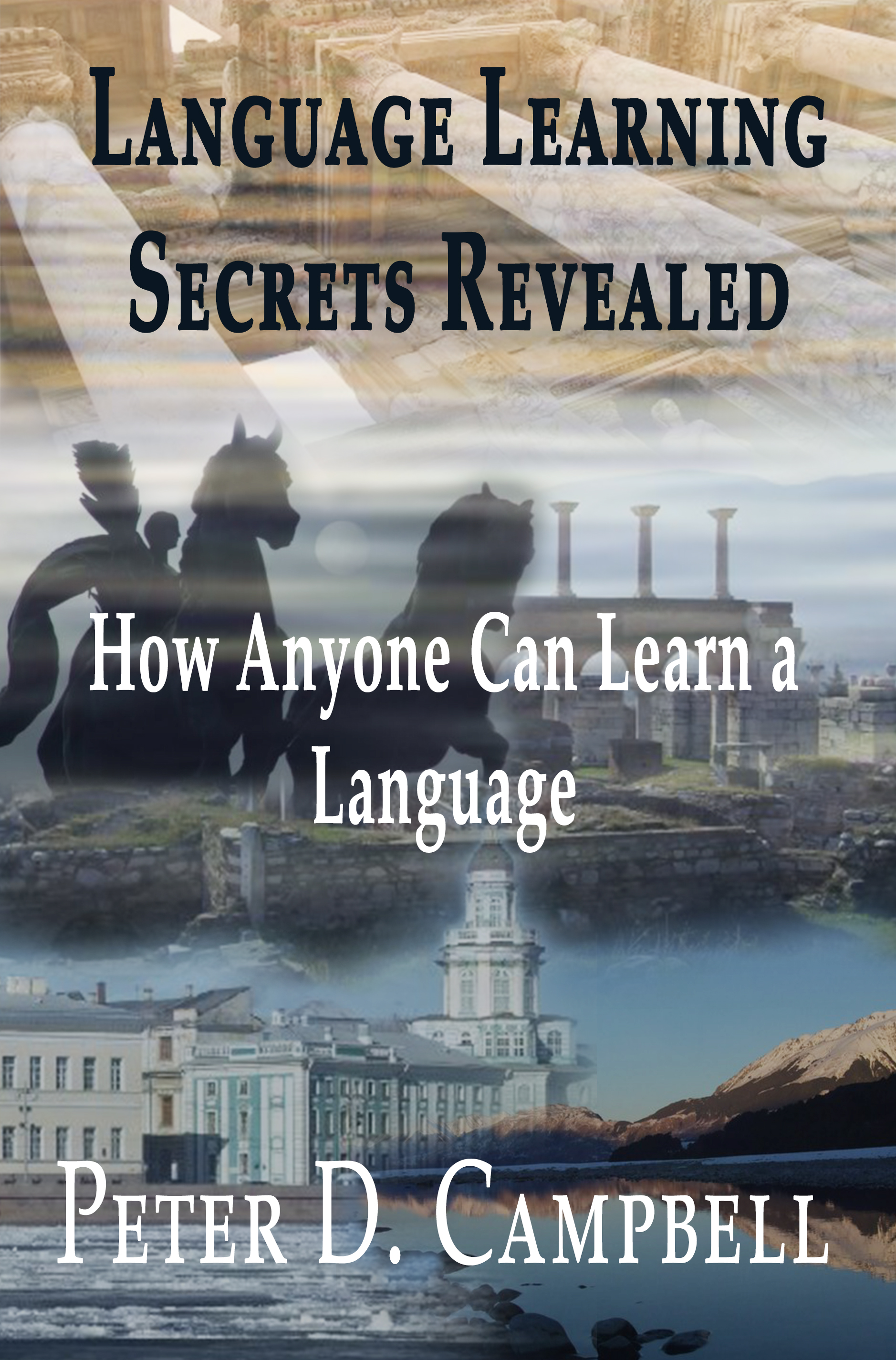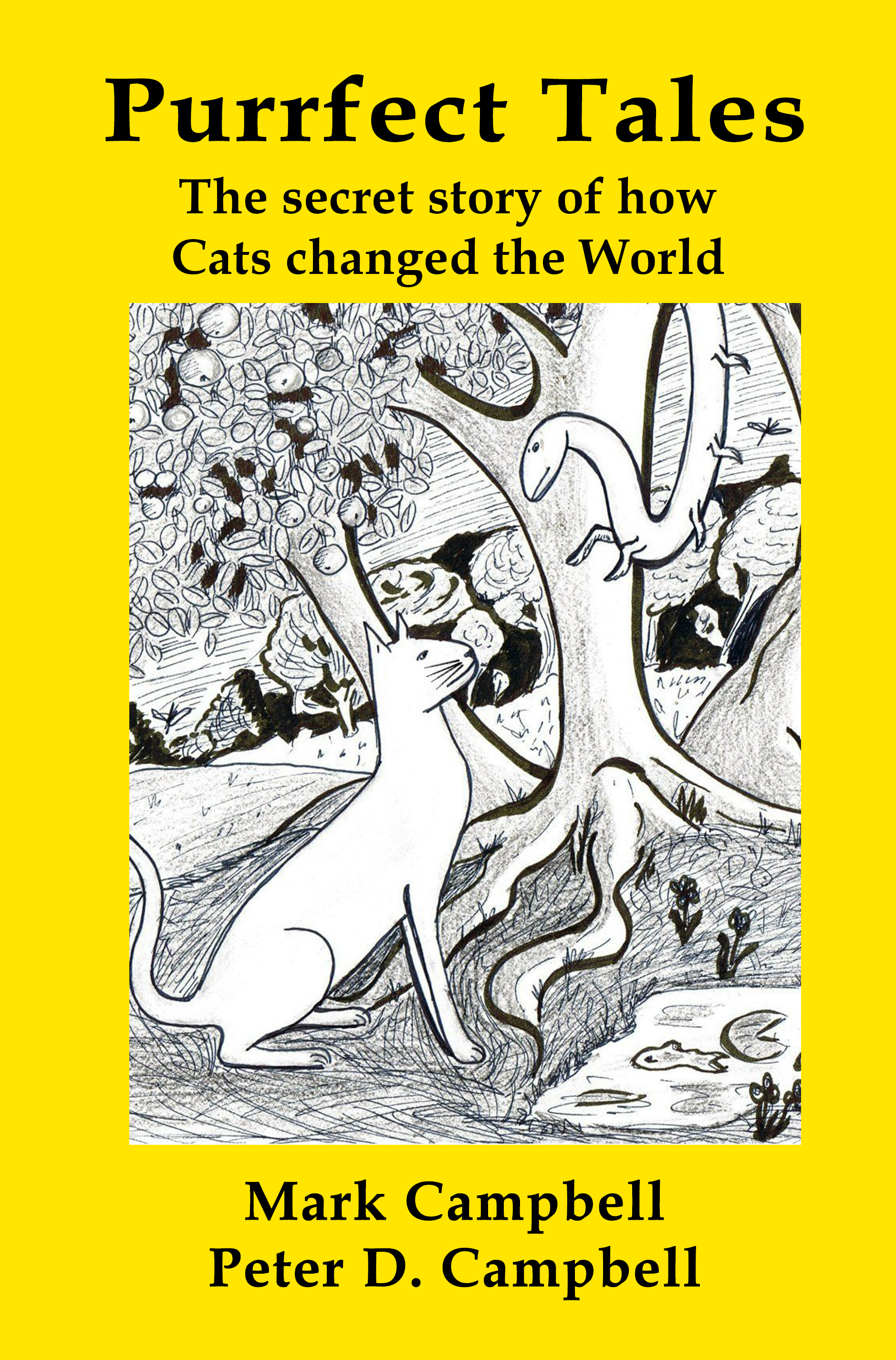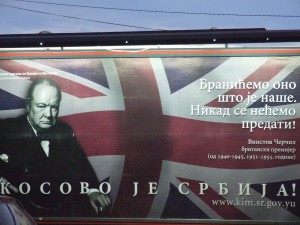
An election poster from the 2008 election depicting Winston Churchill and stating “Kosovo is Serbia.” The elections were followed by a declaration of independence by Kosovo and led to protests outside the US embassy.
When it comes to crossing borders in Eastern Europe when officials start treating you like a friend, you begin to wonder whether something is seriously amiss.
Border crossings are something many people take for granted when travelling. They are associated with long queues and direct officials. However, having spent a considerable amount of time travelling through Eastern Europe I had rather different associations. Border crossings meant potentially placing myself in the power of a poorly paid, suspicious and brutal official. I had a particularly nasty encounter on the Russo-Finnish border when I was taken into an interrogation room for questioning by border guards – one behind a large desk and two standing behind me. Other encounters with authorities in Russia had made me singularly disinclined to risk placing myself in another’s power. Unfortunately, sometimes it could not be avoided and this looked like one of those occasions.
I had reason for concern. It was mid-winter. I had been travelling light for a couple of weeks. My baggage consisted of a small day pack. I had a pair of jeans, a spare shirt, a couple of underpants and a couple of pairs of socks. In the outside pocket I had two-thirds of a bottle of brandy, half a loaf of bread and some smoked ham. My only other possessions apart from my wallet and a New Zealand passport were a notebook, full of local observations, and an expensive digital SLR camera.
They were probably quite accustomed to seeing vagrants in this part of the world, but I doubted they earned a great deal of respect, but the passport, the camera and my notes were not congruent. In this part of the world inconsistencies meant trouble as did being asked to leave the bus in the company of three guards. With an effort I tried to conceal the anxiety and fear that were already starting to pump through my body.
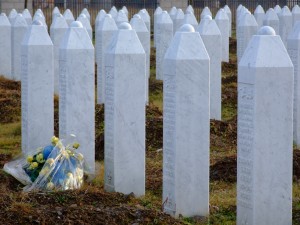
War crimes from the conflicts in the 1990s are still an issue with trials continuing at the Hague and also in Bosnia. Superficially Serb and Bosnian seem to get on well, its hard to belief that the war was so brutal.
As I left the bus I tried to put my thoughts in order, what was I to tell them? I was afraid they would find my notes. Journalists aren’t looked on favourably and are hard to distinguish from spies who definitely have a bad rep round this place. I could always tell them the truth, that would explain my notes and camera but I didn’t think that would help me much. I was on a bus leaving Serbia and my destination was Srebrenica. It was early 2008, Kosovo was clamouring for independence and a Serbian presidential election was in full swing.
The Serbs had been hospitable and friendly. Belgrade was a modern, sophisticated city – although run down and scarred from the NATO bombing in 1999 – but I was afraid of how the officials would react to the presence of a westerner snooping about at such a seemingly important time.
I left the bus and fully expected to be taken into one of those concrete cells with an interrogator who would demand answers to questions and then refuse to believe them. After the brutalising civil war I could imagine Serbian border guards were little better than the Russian variety.
Outside the bus I was met be a rather short gentleman. He was bald, with tufts of white hair cropped around his ears as if to keep them warm against the winter cold. His belly protruded above his waist line and his expression was cordial, if not jolly.
‘Is this your passport?’ he checked as if making sure that he wasn’t talking to the wrong person.
‘Yes, that’s right,’ I responded, forcing a smile, which probably looked rather similar to the grimace in my photograph. All in all I probably looked too similar to my passport picture.
‘You’ve done a lot of travelling, haven’t you? You’ve been all over the place. . . not bad for someone born so far away, in New Zealand?’
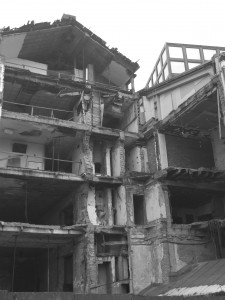
Throughout many of the major cities in the Balkans, it’s hard to escape the reminder of war. This is the broadcasting building which was hit by Nato in 1999
‘No, I was actually born in Australia,’ I corrected him.
‘Oh, really?’ He looked almost surprised, strange, since it was written in my passport.
‘You know I spent some time in Australia myself? Yes, about five years there.’
‘Wow, what a coincidence!’ And it also explains why you have such excellent English, only I couldn’t detect an Australian accent.
‘Yes, it’s a lovely country, do you know it well?’
‘I’ve only been there a couple of times,’ I confessed.
‘And what about your parents?’ He inquired, almost as if he was simply interested in talking about Australia.
‘Yes, they come from Australia, but I grew up in New Zealand.’
‘Oh, very good. My favourite Australian city must be Melbourne. Where did they grow up?’
Again I responded.
‘Oh, how interesting, and were they born there?’
I was now starting to really worry. This wasn’t my favourite uncle Joe, this was a professional interrogator who knew how to get people talking and worm out whatever he wanted. My mind was whirring, my hands started to prick with sweat. My mouth was dry. I answered him again.
He nodded sagely and made a couple more remarks about Australia, and then glancing down at my passport with the same friendliness and bonhomie he had displayed throughout our discussion asked me where I had grown up in New Zealand.
‘I’ve heard it’s a beautiful city,’ he said reassuringly with a friendly smile. ‘And so you have been living how many years in Russia?’
‘Four,’ I answered.
‘That’s a long time, you must be missing home. Why did you go to Russia?’
‘I went to study.’
‘And what do you do now?’
‘I’m a translator,’ I responded.
He bobbed his head, ‘Well I hope you have enjoyed your time in Serbia,’ he said handing me back my passport and waved me onto the bus.
Not quite trusting what had happened, I remained tense, expecting some other hindrance or delay. The bus had started up and passed over the Drina River into Bosnia. They hadn’t checked my bag, hadn’t found the notes or camera. What had they been after? And then I understood, Russia had been a shelter for Serbians wanted by the War Crimes Tribunal at the Hague. The questioning was to check that I really was who my passport claimed I was, and not a war criminal. ‘Welcome to Bosnia’, I thought to myself as the bus wound its way up mountain roads to my final destination, Srebrenica. My experience was contrary to what we have come to expect on the border – there was no queue and the questioning was anything but direct.
Be sure to like Intrepid Adventure on Facebook and check out Peter Campbell’s latest books on Amazon.com.
Copyright © Peter Campbell 2014, www.intrepid-adventure.com

